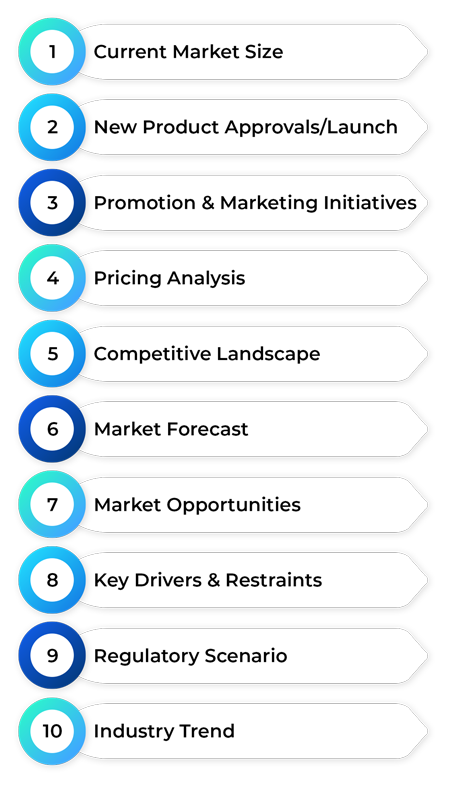 +1 915 229 3004 (U.S.) |
+1 915 229 3004 (U.S.) |  +44 7452 242832 (U.K.)
+44 7452 242832 (U.K.)
 +1 915 229 3004 (U.S.) |
+1 915 229 3004 (U.S.) |  +44 7452 242832 (U.K.)
+44 7452 242832 (U.K.)

The automotive industry has undergone rapid evolution, placing emphasis on lightweight and fuel-efficient vehicles. This surge in demand for aluminum, a material known for its lightweight and durable properties, is reshaping the automotive sector. Projected to experience substantial growth, the automotive aluminum market is poised for expansion due to increased vehicle production, a rising appetite for lightweight vehicles, and stringent fuel efficiency and emission regulations. This market research article offers a comprehensive analysis of the present state and future prospects of the automotive aluminum market. The analysis includes market size, market share, key players, major trends and drivers, opportunities and threats, regulatory and legal considerations, target demographics, and pricing trends.
The Automotive Aluminum Market is forecasted to reach USD 111.85 Billion by 2026, with a Compound Annual Growth Rate (CAGR) of 12.10%.
The Asia-Pacific region dominates the automotive aluminum market, holding over 50.1% of the global market share. The region's increasing demand for lightweight vehicles, particularly in emerging economies like India and China, is expected to propel market growth.
Major players in the automotive aluminum market include:
By Type:
By Application:
By Vehicle Type:
The automotive industry is shifting towards lightweight materials like aluminum to meet the rising demand for fuel-efficient vehicles. Aluminum's benefits, including lightness, durability, corrosion resistance, and recyclability, make it an ideal material. The growing popularity of electric and hybrid vehicles, requiring lighter components for improved range, further fuels aluminum demand.
The automotive aluminum market anticipates significant growth, propelled by opportunities such as the demand for lightweight and sustainable vehicles. However, threats such as raw material price volatility and high capital investments for aluminum production pose challenges.
The automotive industry faces regulations and legal considerations related to safety, emissions, and sustainability. The focus on reducing carbon emissions and enhancing fuel efficiency is pushing the adoption of lightweight materials like aluminum. Companies need to stay abreast of evolving regulations for compliance.
The automotive aluminum market serves diverse demographics, including OEMs, tier-1 suppliers, and end-users. OEMs and tier-1 suppliers represent over 80% of the market share, while end-users prioritize lightweight vehicles for improved fuel efficiency. Younger generations, conscious of sustainability, prefer vehicles made from materials like aluminum.
Pricing trends in the automotive aluminum market vary across segments. For instance, aluminum extrusions used in automotive frames and body structures typically command higher prices than aluminum sheets for exterior body panels. Global aluminum prices, influenced by market demand and supply dynamics, also impact automotive aluminum pricing.
In conclusion, the global automotive aluminum market is poised for significant growth, driven by the demand for lightweight and fuel-efficient vehicles. However, challenges include increased competition from alternative lightweight materials and the volatility of global aluminum prices. Industry players must focus on developing sustainable and cost-effective solutions to remain competitive in this evolving automotive landscape.
?
The Automotive Aluminum Market is forecasted to reach USD 111.85 Billion by 2026
Compound Annual Growth Rate (CAGR) of 12.10%.


List of Tables
Table 1 Global Rigid Box Forecasted Market Size by Type (2020-2028) (USD Billion)
Table 2 Global Rigid Box Forecasted Market Size by Application (2020-2028) (USD Billion)
Table 3 Global Rigid Box Historic Market Size by Regions (2017-2022) (USD Billion)
Table 4 Global Rigid Box Forecasted Market Size by Regions (2023-2028) (USD Billion)
Table 5 Global Rigid Box Historic Market Size by Type (2017-2022) (USD Billion)
Table 6 Global Rigid Box Forecasted Market Size by Type (2023-2028) (USD Billion)
Table 7 Global Rigid Box Historic Market Size by Application (2017-2022) (USD Billion)
Table 8 Global Rigid Box Forecasted Market Size by Application (2023-2028) (USD Billion)
Table 9 Global Rigid Box Market Analysis by Region (USD Billion), 2017-2028
Table 10 North America Rigid Box Market Size (2017-2028) (USD Billion)
Table 11 North America Rigid Box Historic Market Size by Type (2017-2028) (USD Billion)
Table 12 North America Rigid Box Historic Market Size by Application (2017-2028) (USD Billion)
Table 13 South & Central America Rigid Box Market Size (2017-2028) (USD Billion)
Table 14 South & Central America Rigid Box Historic Market Size by Type (2017-2028) (USD Billion)
Table 15 South & Central America Rigid Box Historic Market Size by Application (2017-2028) (USD Billion)
Table 16 Europe Rigid Box Market Size (2017-2028) (USD Billion)
Table 17 Europe Rigid Box Historic Market Size by Type (2017-2028) (USD Billion)
Table 18 Europe Rigid Box Historic Market Size by Application (2017-2028) (USD Billion)
Table 19 Asia Pacific Rigid Box Market Size (2017-2028) (USD Billion)
Table 20 Asia Pacific Rigid Box Historic Market Size by Type (2017-2028) (USD Billion)
Table 21 Asia Pacific Rigid Box Historic Market Size by Application (2017-2028) (USD Billion)
Table 22 Middle East & Africa Rigid Box MARKET SIZE (2017-2028) (USD Billion)
Table 23 Middle East & Africa Rigid Box Historic Market Size by Type (USD Billion)
Table 24 Middle East & Africa Size by Application (2017-2028) (USD Billion)
Table 25 Global Rigid Box Market- Drivers
Table 26 Global Rigid Box Market- Restraint /Challenges
Table 27 Global Rigid Box Market- Opportunity Analysis


Report Code :
RL65594
Published on :
Upcoming
Request a Free Sample Report